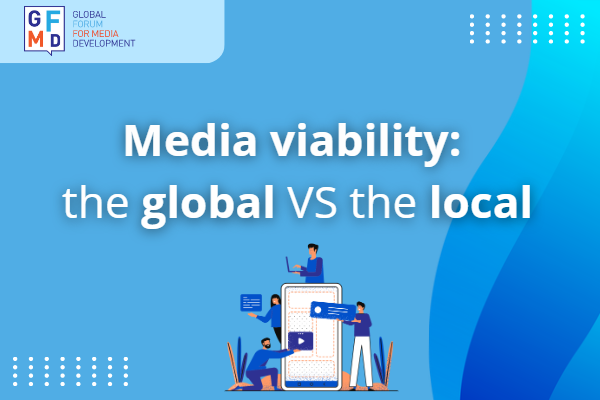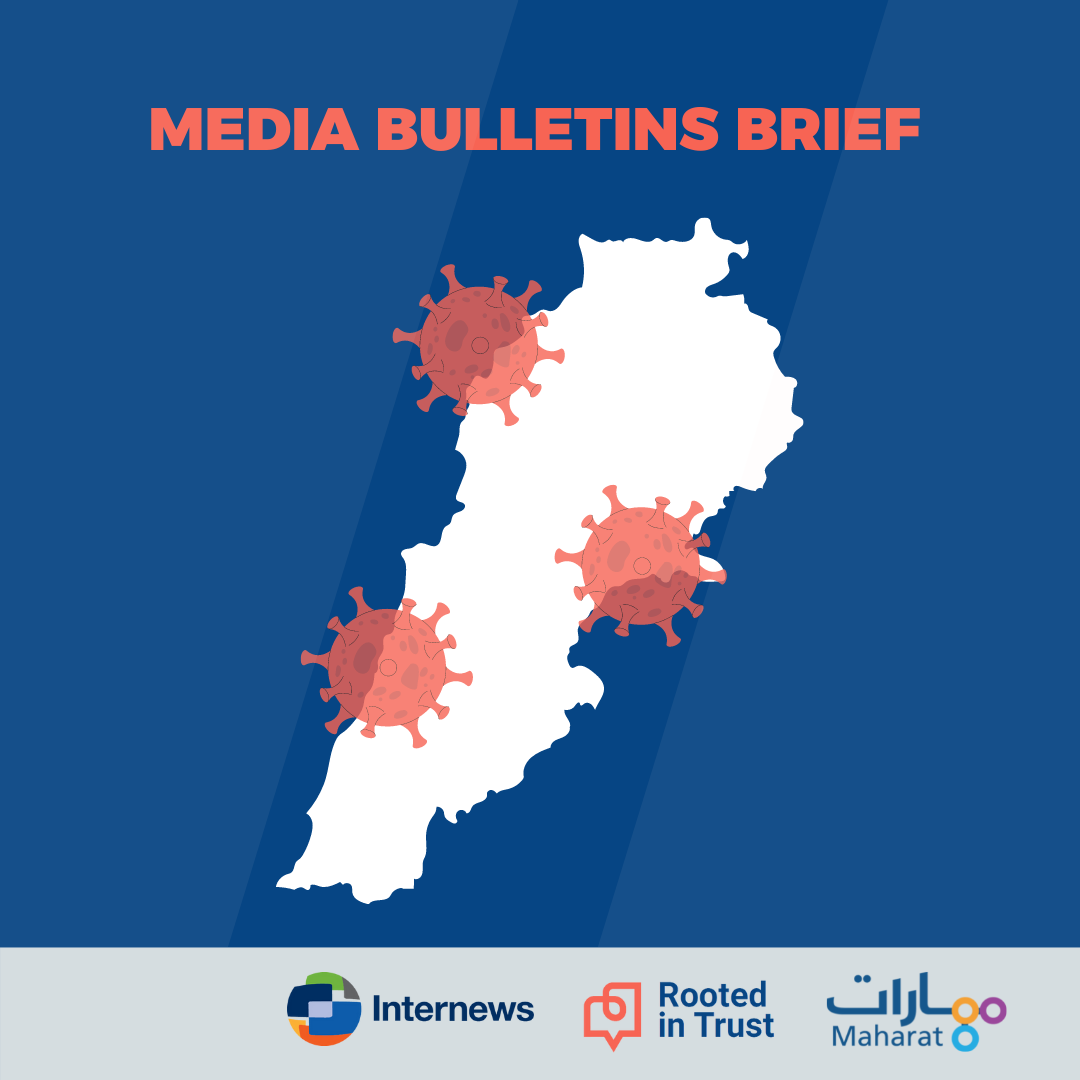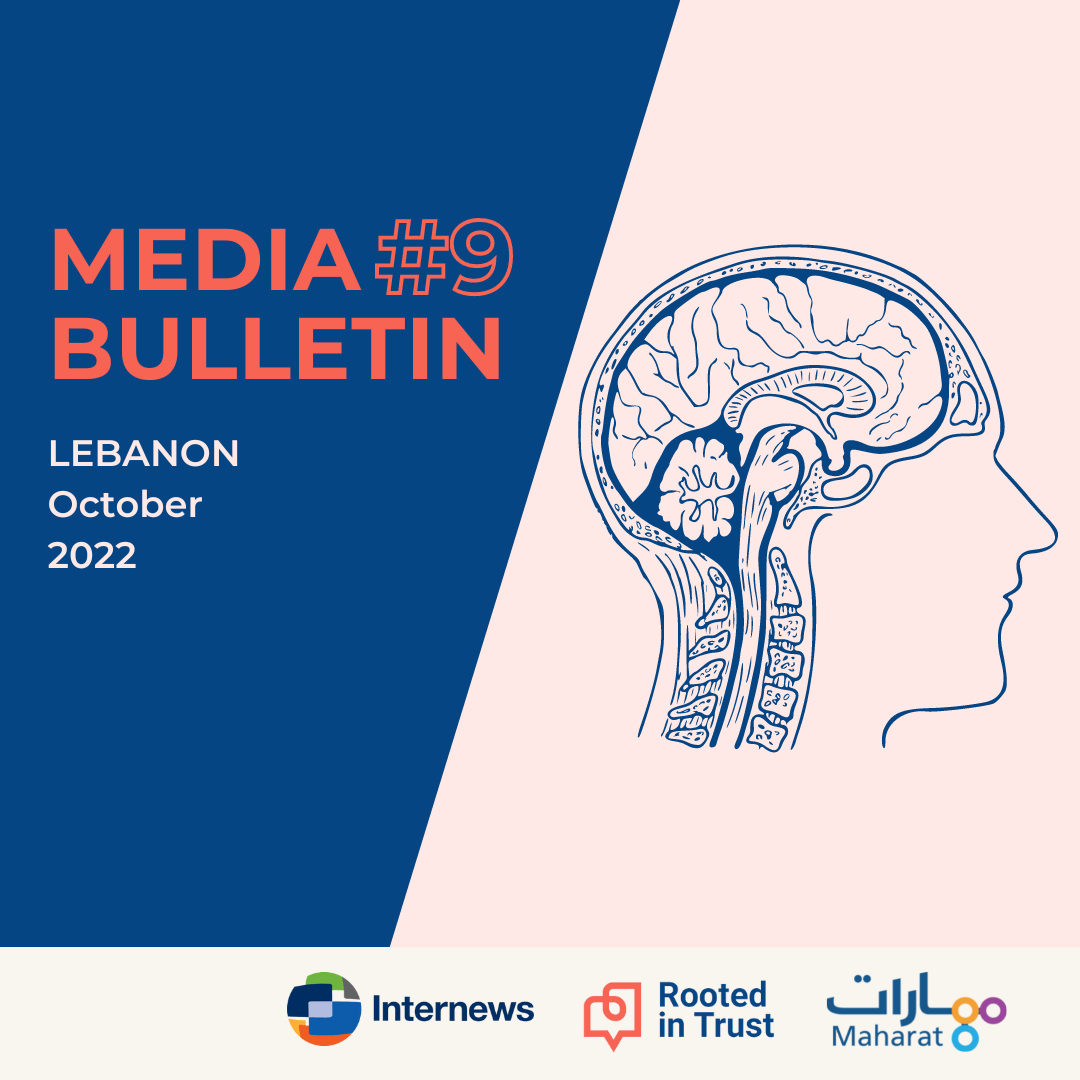
Media Viability: The Global Versus the Local
Market reforms, rebuilding trust, and digital regulation and innovation were key themes to emerge from a series of consultations on media viability in Namibia, Tunisia, and Lebanon organised early this year. GFMD has released three country reports that bring together policy recommendations for supporting journalism and independent media in these countries.
The consultations built upon the previous UNESCO policy brief titled Finding the funds for journalism to thrive: policy options to support media viability, along with other relevant reports and literature. The goal was to stress-test and contextualise global policy recommendations.
Stakeholders and representatives from local media, media development organisations, policymakers and donors came together in each country to identify which of the policy options were most applicable in their circumstances as well as how the wider media support sector could collaborate to advocate or jointly work towards them.
The locally-led consultations were facilitated by Global Forum for Media Development (GFMD) in partnership with UNESCO’s International Programme for the Development of Communication (IPDC) and local implementing partners:
- Lebanon: Maharat Foundation and Samir Kassir Foundation
- Namibia: Editors’ Forum of Namibia and Namibia Media Trust
- Tunisia: Al Khatt, Pamt2 and Pencils Consulting
The national-level consultations facilitated by this project have provided valuable bottom-up insights into ‘lived experiences’. The process of working with local partners to determine the prioritisation of recommendations from recent research and policy papers for comprehensive national consultations underscores the effectiveness of this approach in guiding discussions on local media viability.
These collaborative meetings play a crucial role in empowering local policy knowledge networks and expertise, thereby supporting media viability policies that are grounded in the local context and incorporate the perspectives of all stakeholders.
The process of working with local partners to decide which recommendations from recent research and policy papers should be prioritised for in-depth national consultations demonstrates that this format provides a clear framework from which consultations on local media viability can be led.
Considering the implications of political context is also essential when developing locally driven approaches to media viability. In many instances, meaningful and supportive legislative reforms are unlikely to materialise in the near to medium term. Moreover, opportunities for diversified commercial revenue, online payment systems, or paid subscriptions are severely limited in certain cases. Therefore, media stakeholders need to be realistic about incorporating normative actions into their strategies for supporting local media viability, prior to designing and implementing them.
That is not to say that long-term goals are not needed. Policymakers, both local and international, have a role to play in providing sustained support for media viability. Nonetheless, if locally driven consultations aim to define practical actions, they must also clarify how and when these actions can lead to tangible change.
Key Recommendations
A set of recommendations is proposed for stakeholders who wish to support media viability in Lebanon, including those urging the Lebanese state to bring media laws in line with international standards including decriminalising defamation and blasphemy in collaboration with international organisations and civil society actors and immediately take steps to ensure the physical, digital, and psychological safety as well as the protection of journalists. It should also aim to create a favourable regulatory, legal and taxation environment which can provide financial incentives for media organisations. Donors and media development agencies should provide small, independent, and alternative media with long-term and stable, pluriannual funding. They should engage with international actors to exert international pressure on the Lebanese state to adopt the necessary reforms needed to foster an enabling environment for independent journalism and freedom of expression.
In all cases, the need for better coordination and collaboration across the sector was emphasised. The challenges brought about by an unregulated approach to the advertising market and private sector were also shared across the three countries. There was a demonstrable need to develop responses to digital innovation and change and its effect on the media industry. It is clear from the three country studies that local mainstream and traditional media are less than sophisticated in terms of digital advancements and platform convergence. In addition, big tech is unmistakably seen as an aggressive competitor in these reports. They are seen to dominate local markets with little by way of regulation to ensure a fair, transparent, and more stable business and content environment for the media. In these three cases, while digital and platform regulation was seen as essential. A discussion about the lack of public awareness of the current challenges facing the media also took place in all three countries. The Afrobarometer has indicated that journalists are viewed with as much suspicion as politicians, something that needs to be addressed by regaining the trust of the public. It was argued that this can only be done through sustainable delivery of quality and ethical journalism. Developing national public policies that can support and enable the media to fulfil its role in democracy and be sustainable in rapidly evolving and in some cases restrictive ecosystems was at the core of each set of recommendations and actions which emerged from the consultations.





